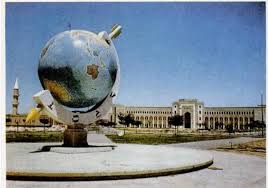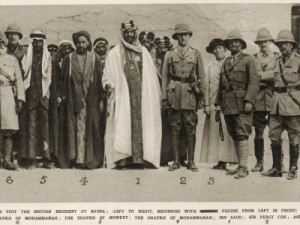“King Salman bin Abdulaziz marks one year in power since becoming the ruler of Saudi Arabia after the death of his half-brother, the late King Abdullah. Salman was crowned as the new King following the death of King Abdullah who passed away on Jan. 23 last year. After his crowning, in a televised speech, King Salman said: “We will continue to hold on to the strong path on which Saudi Arabia has walked on since King Abdulaziz.”……….”
Strong path indeed: I beg to differ, strenuously. Controlled Saudi media have been making a lot of the first anniversary of King Salman’s reign. They always do, for every king.
This one certainly started quite different from the reigns of the three kings that preceded him. While all Saudi kings picked, mostly, their own successors from among their brothers and half brothers, Salman quickly cut to the chase. He appointed his favorite young son Prince Mohammed Bin Salman (MBS) as a crown prince to the crown prince. The crown prince himself is his nephew Prince Mohammed Bin Nayef (MBN) who, tellingly, is reported to have no male heirs.
MBS is already acting as almost a king, not even a king in waiting. He is now Minister of Defense, a very lucrative post in Saudi Arabia (and the Gulf). He has also been given a lot of powers over the economy as well. Yet the rival MBN is also powerful: he is minister of interior and controls the police, the religious police, and the domestic security apparatus.
Saudi opposition of its various stripes (Wahhabi and otherwise) claim that MBS is plotting to get rid of cousin MBN while his father the king is alive. That would leave his uncles Prince Muqrin Bin Abdulaziz and Prince Ahmed Bin Abdulaziz as possible blocks in his way.
Yet King Salman’s reign has not gone well, an understatement. The Saudis had earlier started a campaign to reduce crude oil prices with the goal of harming their Iranian and Russian rivals. That was when prices were well above $100 a barrel. They probably thought a price around $100 would be okay for their economy but still harm their regional rivals, and harm the U.S. shale industry. I opined here that this was a stupid policy and could backfire on them. It did backfire, big time, and it may end up harming the Saudis more than their rivals and neighbors. Oil reached down to $100 and kept going down. Now it is around $30, well below what can be considered the Saudi break-even point, reportedly closer to $80-$100. No firming of prices is in sight, give that more Iranian and Iraqi crude will be flowing in the near future.
Then there is the costly quagmire in Yemen, in which some of the most advanced and most lethal Western weapons are being used against lightly-armed opponents. And against unarmed civilian populations. The most advanced Western weapons also happen to be the most expensive weapons in the world to service and replenish. And they need Western logistics and guidance support for targeting. So the Saudi war in Yemen is also a Western war on a party that has never threatened the West, unlike its Wahhabi rivals like AQAP and IS.
It is a war not only against the Houthis and the Yemeni army; it is a war on the painfully-built infrastructure of the poorest Arab country outside Africa. They are stuck in Yemen with no victory in sight, but they have plenty of foreign mercenaries for hire to fight the war, mainly from Sudan, Somalia and from far away places like Colombia and Australia and South Africa. The costly self-inflicted war has come at a bad time for the Saudi budget and people, but the princes always manage to thrive financially.
Then there are the military and diplomatic losses in Syria and Lebanon. I forgot the potential coup de grâce: finalization of the Iran nuclear deal and the lifting of Western sanctions on the mullahs.
Not bad for one year’s work! Long live the king, I think………
Cheers
Mohammed Haider Ghuloum





